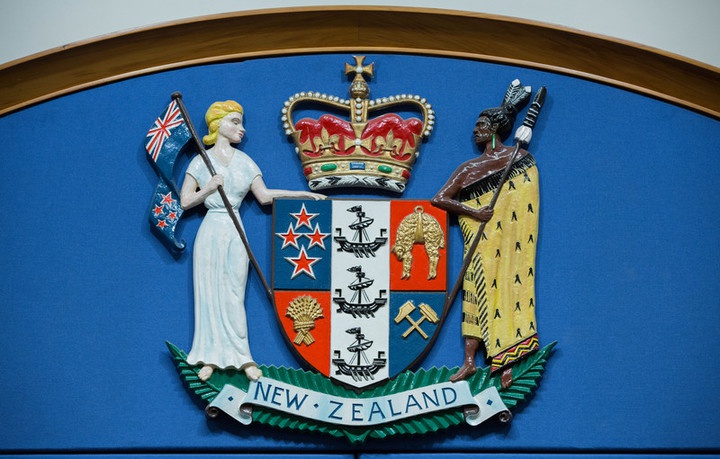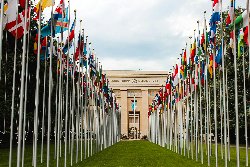The document reportedly published online by the accused mosque gunman is aimed at inciting vulnerable people to commit acts of violence, Chief Censor David Shanks says.

Photo: RNZ / Claire Eastham-Farrelly
Free speech advocates are calling the censor's decision to classify the document as objectionable an "improper use" of censorship powers.
The classification makes it illegal to possess a copy of the document or to share it.
According to the Films, Videos & Publications Classification Act a publication is objectionable "if it describes, depicts, expresses, or otherwise deals with matters such as sex, horror, crime, cruelty, or violence in such a manner that the availability of the publication is likely to be injurious to the public good". Possessing or sharing the objectionable material carries a jail term of up to 14 years.
Last week video footage of the shooting was also classified as objectionable material.
"There is detail in there about potential
targets for this type of atrocity" - Chief Censor David
Shanks duration 5:05
from Morning Report
Click a link to play audio (or right-click to
download) in either
MP3 format or in OGG format.
The Free Speech Coalition said the manifesto could be important for society to understand a dark part of New Zealand's history.
"New Zealanders need to be able to understand the nature of evil and how it expresses itself," coalition spokesperson and constitutional lawyer Stephen Franks said.
Defending his decision, Chief Censor David Shanks told Morning Report a number of criteria were checked when assessing this sort of material.
"We look for exhortations to kill, exhortations to commit terrorism from someone who has influence and credibility in persuading others to do likewise," he said.
These types of publications were not the place to go in search of reasons behind such events, because they were specifically aimed at a "vulnerable and susceptible "audience, "to incite them to do the same type of crime, he said.
"There is content in this publication that points to means by which you can conduct other terrorist atrocities ... it could be seen as instructional.
"There is detail in there about potential targets for this type of atrocity and there are justifications for carrying out extreme acts of cruelty."
Those who have the publication for legitimate purposes, such as reporters, researchers and academics to analyse and educate can apply for an exception.
To those people Mr Shanks would say: "Destroy and delete copies that they currently hold, but to apply to us immediately for an exemption that will allow exactly those sorts of individuals who have a right to have access to this publication and have a genuine public interest in reviewing and assessing it."
For how long the copies can be held will be decided on a case by case basis.
He said those who were upset about the document being classified as objectionable could appeal the decision.
"We live in a free society."



 Harry Finch: Austerity – For And Against
Harry Finch: Austerity – For And Against Gordon Campbell: On Winston Peters’ Pathetic Speech At The UN
Gordon Campbell: On Winston Peters’ Pathetic Speech At The UN Binoy Kampmark: Flicker Of Hope, Biden’s Throwaway Lines On Assange
Binoy Kampmark: Flicker Of Hope, Biden’s Throwaway Lines On Assange Media Matters NZ: Here We Go Again
Media Matters NZ: Here We Go Again Ian Powell: How To Immobilise A Health System’s Primary Statutory Adviser And Monitor
Ian Powell: How To Immobilise A Health System’s Primary Statutory Adviser And Monitor Gordon Campbell: On Israel’s Murderous Use Of AI In Gaza
Gordon Campbell: On Israel’s Murderous Use Of AI In Gaza